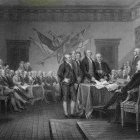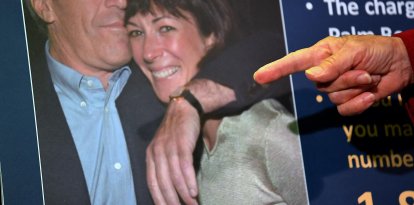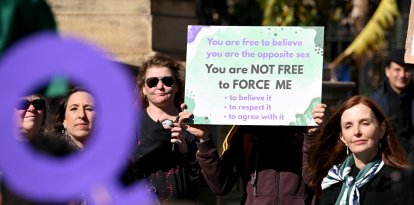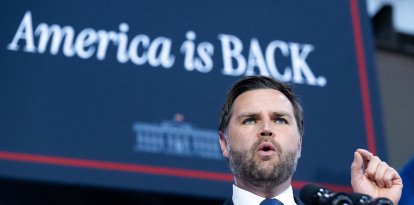An all-time high of US adults believe the nation is "greatly divided": Gallup
According to the Washington D.C.-based consulting firm, 80% of respondents believe there is deep polarization over the country's core values.

Protesters set fire to an American national flag during 2020 protests.
A majority of Americans believe the nation is deeply divided on core values, a view shared by Democrats, Republicans and independents almost equally for the first time in history, according to a recent Gallup poll.
According to the group, a record 8 in 10 U.S. adults say the country is "greatly divided" heading into the November presidential election. That represents 80% and a small but steady increase from 2016 results, when Gallup last asked the question, and 77% of Americans responded that the country was divided. That number also represented a new high-water mark at the time.
Relative to similar surveys in 2004 and 2012, the sense of division increased by more than ten percentage points, underscoring that Americans think internal divisions have been great for several years but never at current levels.
Specifically, only 18% of respondents this year perceived the nation as "united or in agreement about the most important values."

Society
The Declaration of Independence, a moral beacon ignored by the government and the public
Emmanuel Alejandro Rondón
Gallup first began asking this question in 1993, intending the premise to be ambiguous so that respondents could answer in the broadest possible terms.
In that sense, only in 2001 and 2022, following the 09-11 terrorist attacks, did Americans say the country was united.
"Public skepticism about national unity isn’t new. Surveys by Gallup and others dating back to the 1990s show that Americans typically have seen the country as divided on key values. Only in 2001 and 2002, in the aftermath of 9/11, did Gallup find most Americans perceiving the opposite, with over two-thirds of U.S. adults believing the nation was united," said Jeffrey M. Jones, Gallup senior editor.
According to Gallup, all races, political identities, ages and demographic groups responded similarly.
Gallup also remarked that, in most years, Democrats, Republicans and independents have held similar views on the state of the nation's unity.
However, in 2004, 2012 and 2016, there were significant partisan differences in perceptions of the nation's division. Democrats felt the nation was more united when President Barack Obama won re-election, and Republicans thought the country was more united with George W. Bush's 2004 victory or Donald Trump's surprise 2016 win.
The difference now is that all respondents, regardless of party affiliation, believe the country is deeply divided.
In an analysis of the numbers, Jones wrote that Gallup believes the divisions have been clearly reflected in the makeup of Congress, whose chambers show fractures not only between Republicans and Democrats, who dominate the House and Senate by narrow margins respectively but also between factions of the same parties that cannot reach fundamental agreements such as funding for the federal government.
Gallup also found that Americans have significant differences among 24 key issues, especially between Republicans and Democrats.
"And nearly all of those gaps have expanded over the past two decades," Jones wrote. "The biggest increases in partisan differences have occurred on issues related to federal government power, the environment, education, abortion, foreign trade, immigration, gun laws, healthcare and taxes."


























